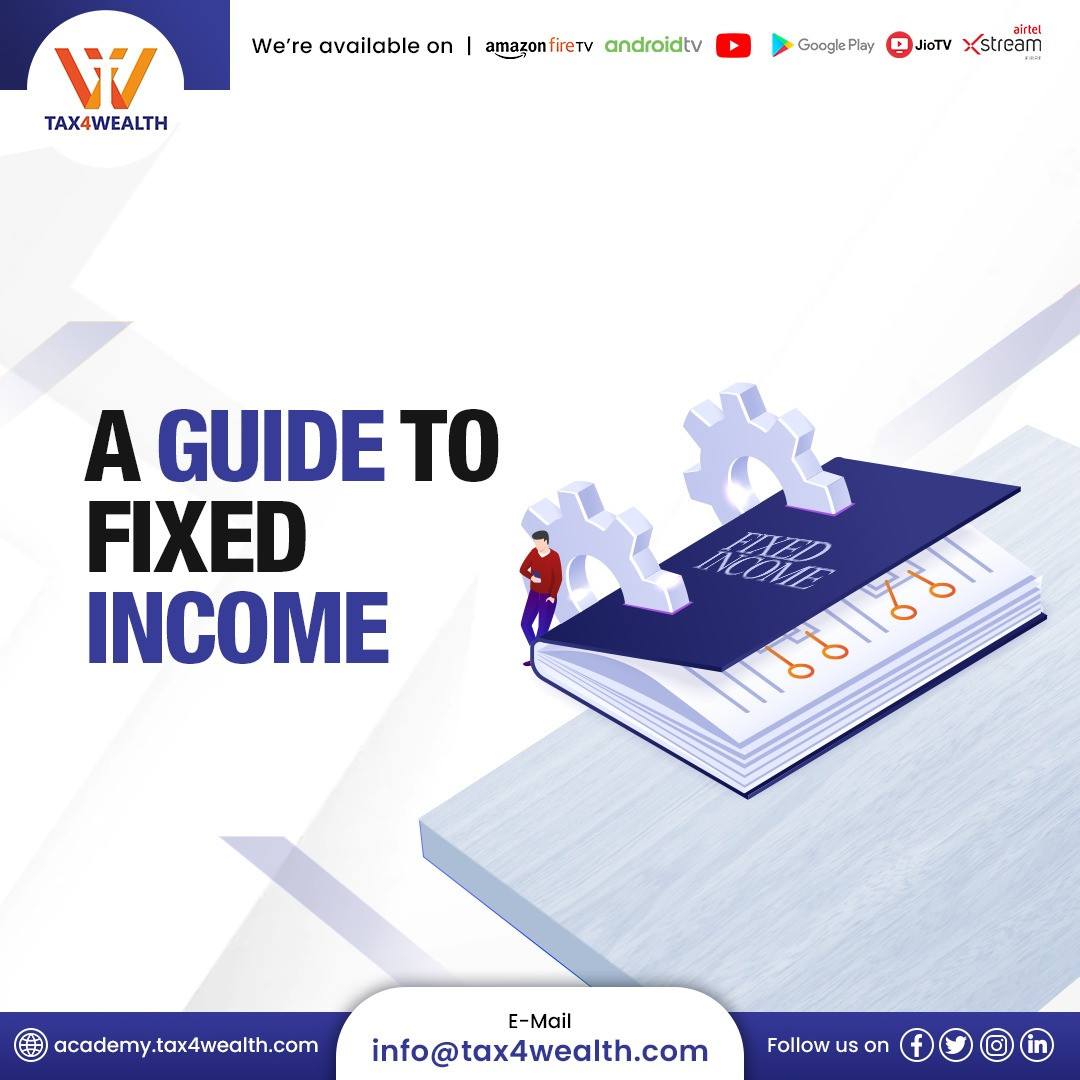
Top 30 Interview Questions and Answers for Income Tax
Introduction:
If you're looking for a job in the Income Tax department. This blog will serve as a resource for you as you prepare for Income Tax Interview Questions and Answers. To work in the Income Tax Department of the Government, one must pass both the (Union Public Service Commission) UPSC prelims and mains exams. Another option is to pass the Income Tax Department Selection Test, which comprises four papers. If the aspirants pass any of these, they would be qualified for an interview.
Q-1. Give a brief introduction about yourself
This is the first question that many interviewers ask. This is an icebreaker question, and the interviewer will frame the next question based on your response. It's a broad-reaching question that covers a lot of ground on the candidate. The interviewer asks this question to make the candidate feel at ease and to gain insight into the candidate. Never be overly enthused when answering this question, but always be honest. If it is answered correctly and professionally, the chances of being recruited increase.
Q-2. Describe income tax in more detail
This Income Tax Interview Questions and Answers serve as the foundation for an income tax. The government levies income tax on individuals' earnings to fund public expenditures or outlays to achieve the goal of social security. The tax is levied for the fiscal year at the rates set by the Central Government in the Union Budget for the fiscal year before the current year.
Q-3. How is the Income Tax calculated?
Income tax is determined based on an individual's total income from salary, company profits, capital gains, house property, and other resources. Every fiscal year, the income tax is determined using the tax slab published by the government.
Q-4: What do you mean by Total Income?
Total Income is the amount on which Income Tax is paid, including any income that occurs, accrues, is received, or earns in India. It excludes money generated outside of the country. It is the total amount earned by an individual or business, including income from providing services or employment, payments from pension schemes, dividend income, and sales revenue. Total income is determined for tax purposes, calculating an individual's or organization's ability to make debt payments, or determining a company's net worth.
Q-5. What is the difference between the Financial Year, the Previous Year, and the Assessment Year?
The Financial Year runs from April 1st to March 31st of each year. It is used in enterprises and organizations to calculate various financial evaluation statements every year.
The Assessment Year is the year immediately following the fiscal year in which the income from the preceding fiscal year is assessed. The assessment year is used by the government to assess the preceding year to collect taxes.
The previous year is the year in which income is earned and becomes taxable in the following assessment year. For example, if the current evaluation year is 2020-2021, the previous year is 2019-2020.
Q-6. What exactly do you mean by Assesses?
An Assesses is a person who is required to pay tax or any other quantity of money under the Income Tax Act. It includes anyone about any proceeding brought under this Act for the assessment of his income or the income of the other person in respect of whom he is assessable, or any loss sustained by him or such other person, or the amount refunded due to him or such other person, as well as anyone who is considered to be an assessee under any provision of this Act.
Q-7. How to decide the residential status of profits or income taxpayers?
Individuals' residential status is classified as Resident or Non-Resident under the terms of the Income Tax Act.
So, under Section 6(1), an individual is said to be a resident of India in any previous year if he meets any of the basic conditions, namely, he is in India for at least 182 days in the previous year or he is in India for at least 60 days in the relevant previous year and at least 365 days in the four years preceding that of the previous year.
If a person, regardless of nationality, fails to comply with this condition, they are classified as a non-resident.
Q-8. How does an individual's tax liability change as a result of his residency?
According to Section 5 of the Tax Act, a private's responsibilities are affected by his residence status and are also linked to the place and time of receipt of the income. There is a distinction between Indian and foreign income since Indian income is always taxable in India regardless of the individual paying the tax's residency status.
Q-9. What is Indian Income?
Indian income is defined as the money obtained or deemed to have been received in India during the previous year as well as the money accrued or deemed to have accrued in India during the same year. It is sometimes referred to as "Indian income" if the money was received in India during the prior year or was believed to have been received there during the prior year, or if the revenue was received abroad during the prior year but accrued in India during the prior year.
Q-10. What types of revenue are included in accumulated income?
Accrued income is money that has been earned but not yet received. Both the accounting period in which the money is produced and the period in which it will be received must be used to record the income.
Q-11. What is your knowledge of the fringe benefits tax?
The tax that an employer must pay for the perks that are provided to his employer in addition to the compensation is known as the "Fringe Benefits Tax." It is paid instead of the value of the fringe benefits that the employer gave or is alleged to have provided to his employees in the previous year.
Q-12: What exactly do you mean by "Capital Gain?"
The profit made from the sale of an asset is referred to as capital gain. When an asset is sold, the income or gain those results is the difference between the selling price and the purchase price. Short-term and long-term capital gains are both possible. If an asset is held for less than a year and then sold, it is considered a short-term gain; however, if the item is held for more than a year to three years and then sold, it is considered a long-term gain.
Q-13: What are your thoughts about AMT?
The Alternative Minimum Tax (AMT) is a tax that employs a distinct set of principles to assess taxable income after deductions. This is a method of discouraging rich people from evading taxes. It limits certain perks for higher-income tax groups and reduces the taxpayer's normal tax amount. If the tax benefits lower the total tax below the AMT ceiling, the taxpayer must pay a higher AMT amount.
Q-14. In India, is it possible to seek a refund for an overpayment of taxes?
Yes, there is a provision in India for receiving a refund of overpaid taxes combined with interest. When requesting a refund, one must file an income tax return within a certain time frame. The status of tax refunds can be tracked on the NSDL-TIN website by entering the Permanent Account Number (PAN) and the year of assessment for which the refund was sought under the Status of Tax Refunds page.
Q-15: What exactly do you mean by the ICR procedure, and how does it benefit you?
The Inter-Firm Reconciliation (ICR) method assists the parent company in separating itself from its subsidiary companies based on location. Businesses that are commonly controlled must prepare a consolidated financial statement for tax and reporting purposes each year. This method aids in the maintenance of accurate reporting as well as the avoidance of misinterpretation of the firm's financial status.
Q-16. What exactly is a Provident Fund? What are the different kinds?
The Provident Fund is a government-managed program in which both the employer and the employee contribute to the employee's wage.
Provident Funds are classified into 4 types: -
-
A recognized Provident Fund - RPF is a program that must be approved by the Income Tax Commissioner and applies to an organization with at least 20 employees.
-
An unrecognized provident fund - URPF - is established by employers and employees in a business and is not approved by the Income Tax Commissioner.
-
The statutory Provident Fund - SPF is primarily intended for employees of Educational Institutes (associated with universities).
-
PPF requires a minimum contribution of Rs.500 per year and a maximum contribution of Rs. 100,000 per year. Unless extended, the contribution and interest received are repayable after 15 years.
Q-17: What exactly is Excise Duty?
An indirect tax is charged on commodities manufactured in India that are intended for personal use. The taxable person is the manufacturer, and the excise duty responsibility originates from the items manufactured. The manufacturer pays this tax, which is then passed on to the customers.
Q-18: What exactly is service tax?
Service tax is a government-imposed indirect tax on certain services that are paid by customers rather than service providers. The service tax includes services such as AC restaurant services, motels, and inns.
Q-19: What is an Excise tax, and how does it vary from a Service tax?
Excise tax is another sort of indirect tax that is levied on the manufacture, sale, or use of specific goods or products. It is typically levied on items such as cigarettes or alcohol, as well as on the cost of activities such as gambling. Excise taxes can be levied by both federal and state governments. It differs from service tax in that it is levied on manufactured commodities, whereas service tax is levied on services rendered.
Q-20. Does an NRI have to pay property tax if he buys a property in India?
Any income or capital gain generated by an NRI from the sale, rent, or lease of a valuable property or asset based in India must be taxed by Income Tax guidelines. If the property is more than three years old, a long-term capital gain of 20% will be incurred on the sale of the property.
Q- 21: What is deferred tax liability? What goods are included in deferred tax liability?
Deferred tax liability refers to a tax liability that a firm owes but does not pay at the moment but must pay at some point soon. It is a balance-sheet item that accounts for the gap between future taxes owed and taxes paid today.
Deferred tax liability includes items such as unrealized tax and depreciation.
Q-22. What exactly is amortization?
Amortization occurs when a company's assets are written off over numerous years to renew or replace them and are not dependent on the asset's life. It is not synonymous with depreciation.
Q-23: What exactly is a deferred tax asset?
A deferred tax asset exists when a company pays taxes early or has paid too much tax and seeks money back from the tax authorities. The word appears on the balance sheet and is also referred to as a provision for future taxation.
Q-24. What do the terms Streamlined Sales and Use Tax Agreement mean?
Both titles were coined in 1999 by the National Governors Association (NGA) and the National Conference of State Legislatures (NCSL) to facilitate sales tax collection. Because sales tax is the second-largest source of revenue for the state after personal income taxes, collection needed to be streamlined. It resulted in the creation of a more straightforward and business-friendly sales tax regime. The Agreement reduced the expenses and administrative difficulties of collecting sales taxes on businesses, particularly those operating in many states.
Q-25: What exactly do you mean by taxation?
The government uses taxation as one of the methods to support its expenses by placing charges on corporate organizations and citizens. The government charges its population to encourage or discourage specific economic decisions.
Q-26: What exactly is a tax refund?
A tax refund is when the government returns the extra tax paid by an individual over the amount payable by the individual. When you file your income tax return for the year, the income tax, tax deductions or credits, withholdings, and other criteria are considered; you will then receive a tax refund.
Q-27: What exactly is fund flow?
Working capital is the primary source of funds. It describes the numerous sources of funds, which is highly helpful in comprehending long-term financial plans. The arrangement of changes in working capital shows the changes in current assets and current liabilities.
Q-28. What exactly is cash flow?
Cash flow is primarily determined by only one component of working capital, which is cash. It begins with the cash opening balance and ends with the cash closing balance. This is highly valuable for understanding short-term tactics that affect firm liquidity. The cash flow shows the changes in current assets and current liabilities.
Q-29: What do you mean by "Commercial Tax"?
Commercial Tax refers to the tax imposed on scheduled commercial items and collected indirectly by the seller or buyer against his business transactions, which today include sales, entertainment, luxury, admission, and profession.
Q-30: What exactly do you mean by "transfer income?"
Transfer income occurs when someone retains ownership of an asset while also agreeing to transfer its revenue, yet the income is considered his income and is added to the overall income.
Conclusion:
As a result, the aforementioned income tax interview questions answers are frequently encountered by candidates. If you wish to brush up on your skills and become an Income Tax Specialist, you can take the Income Tax Certification Course. This will not only help one prepare for selection tests, but it will also help one face a personal set of interviews. The set of questions and answers will also aid in answering objective-type inquiries. When one gets a position in the income tax department, they get various benefits such as job stability and a consistent salary, an assured pension, medical coverage, and other benefits.
No comments yet, Be the first to comment.













